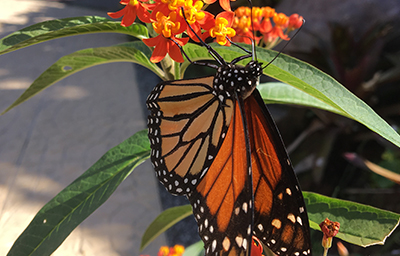
|
5 years and younger |
|---|
Speak Like a Tico!

A Second Life for a Beloved Tree
August 10, 2017
Volcano Activity Update
October 18, 2017Speak Like a Tico!
Ten Spanish Terms You’ll Hear in Costa Rica
Most people know at least a few Spanish words when they arrive in Costa Rica, but there are a few common terms you might not be familiar with.
Ticos: Costa Ricans: tico is a man or boy. A tica is a woman or girl. This is what Costa Ricans proudly call themselves. The term comes from our tendency to add –tico to words in order to indicate less, or an affectionate diminutive. For example, “rato” is a little while; “ratico” is a shorter while.
Mae: dude: Overwhelmingly used by men, about men.
Pura Vida: pure life: This is more than a phrase; really it’s a state of mind, an attitude, a feeling of heart and soul. It’s used to indicate that life is good, everything’s great, or that something’s cool. Finding your Pura Vida vibe means that Costa Rica has gotten under your skin in a very good way!
Examples:
• How are you doing? Pura vida! (I’m doing great)
• How did it go? Pura vida! (It was fantastic)
• My friend is going to join us. Pura vida! (That’s great)
• I’ll be back next year. Pura vida! (That’s great news)
Don, doña: no translation: these are terms of respect that are always used with the first name of an individual—as in don José, or doña María. In Costa Rica it is considered rude to address an older person by their first name unless invited to do so. The terms don and doña are always used to address persons older than you, or of a higher level of prestige such as a boss, your host, a client, or even the president of the country. The use of Señor or Señora (Sr. or Sra.) as we might use Mr. or Mrs., or “sir” and “ma-am” are used in more formal occasions, or when referring to a man or woman in a respectful way.
Examples:
• I’m pleased to meet you don Carlos.
• The señora needs sugar for her tea.
• Doña Eva is the owner of the store.
• Excuse me, señor.
Gracias a Dios: thanks to God: Ticos don’t just say thank you with a simple “gracias”: they often add God as when we say, “thank heavens” or “thank God.”
Mucho gusto: much pleasure. It’s a pleasure to meet you.
Con mucho gusto: with much pleasure: you’re welcome. This is used more often in Costa Rica than the textbook term “de nada.”
Buen provecho, provecho: bon apetit: enjoy your meal.
Por dicha, qué dicha: what luck: fortunately, luckily, that’s great.
Soda: small, casual neighborhood diner.







